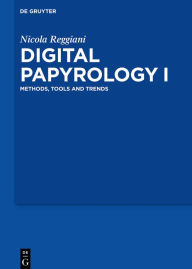Digital Papyrology I: Methods, Tools and Trends
by Nicola Reggiani
2020-09-03 00:26:59
Digital Papyrology I: Methods, Tools and Trends
by Nicola Reggiani
2020-09-03 00:26:59
Since the very beginnings of the digital humanities, Papyrology has been in the vanguard of the application of information technologies to its own scientific purposes, for both theoretical and practical reasons (the strong awareness towards the probl...
Read more
Since the very beginnings of the digital humanities, Papyrology has been in the vanguard of the application of information technologies to its own scientific purposes, for both theoretical and practical reasons (the strong awareness towards the problems of human memory and the material ways of preserving it; the need to work with a multifarious and overwhelming amount of different data). After more than thirty years of development, we have now at our disposal the most advanced tools to make papyrological studies more and more effective, and even to create a new conception of papyrology and a new model of edition of the ancient documents. At this turining point, it is important to build an epistemological framework including all the different expressions of Digital Papyrology, to trace a historical sketch setting the background of the contemporary tools, and to provide a clear overview of the current theoretical and technological trends, so that all the possibilities currently available can be exploited following uniform pathways. The volume represents an innovative attempt to deal with such topics, usually relegated into very quick and general treatments within journal articles or papyrological handbooks.
Less







.jpg)











.jpg)











